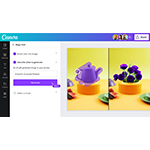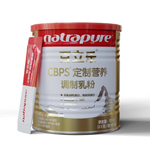DUBLIN--(BUSINESS WIRE)--The "Pulmonary Arterial Hypertension (PAH) - Market Insights, Epidemiology and Market Forecast - 2030" report has been added to ResearchAndMarkets.com's offering.
Pulmonary Arterial Hypertension (PAH)- Market Insights, Epidemiology and Market Forecast-2030 report delivers an in-depth understanding of the disease, historical & forecasted epidemiology as well as the market trends of PAH's in the United States, EU5 (Germany, Spain, Italy, France and United Kingdom) and Japan.
The Report provides the current treatment practices, emerging drugs, market share of the individual therapies, and current and forecasted market size of Pulmonary Arterial Hypertension (PAH) from 2017 to 2030 segmented by seven major markets. The Report also covers current treatment practice/algorithm, market drivers, market barriers and unmet medical needs to curate best of the opportunities and assess underlying potential of the market.
Key Benefits
- This report will help to develop Business Strategies by understanding the trends shaping and driving Pulmonary Arterial Hypertension market
- Organize sales and marketing efforts by identifying the best opportunities for Pulmonary Arterial Hypertension market
-
To understand the future market competition in the Pulmonary Arterial Hypertension market.
Pulmonary Arterial Hypertension (PAH) - Disease Understanding and Treatment Algorithm
Pulmonary Arterial Hypertension (PAH) is a rare, chronic, and progressive form of Pulmonary Hypertension which is characterized by the elevated pulmonary arterial pressure (PAP) and pulmonary vascular resistance (PVR) in blood vessels carrying the blood from the right side of the heart through lungs. It occurs due to the tightening and stiffening of the small pulmonary arteries leading to the right ventricular dysfunction and vessel obstruction.
The Pulmonary Arterial Hypertension (PAH) market report gives the thorough understanding of the PAH by including details such as disease definition, classification, symptoms, etiology, pathophysiology, diagnostic trends. It also provides treatment algorithms and treatment guidelines for Pulmonary Arterial Hypertension in the US, Europe and Japan.
Pulmonary Arterial Hypertension Epidemiology
The Pulmonary Arterial Hypertension (PAH) epidemiology division provide the insights about historical and current patient pool and forecasted trend for every 7 major countries. It helps to recognize the causes of current and forecasted trends by exploring numerous studies and views of key opinion leaders. This part of The report also provides the diagnosed patient pool and their trends along with assumptions undertaken.
The disease epidemiology covered in the report provides historical as well as forecasted epidemiology (total prevalent population of PAH, subtype-specific population of PAH and gender-specific PAH diagnosed pool) scenario of Pulmonary Arterial Hypertension (PAH) in the 7MM covering United States, EU5 countries (Germany, Spain, Italy, France and United Kingdom) and Japan from 2017-2030.
According to the publisher, the total number of prevalent cases of Pulmonary Arterial Hypertension (PAH) in 7MM was found to be 70,774, in the year 2017.
Key Topics Covered:
1. Key Insights
2. Executive Summary of Pulmonary Arterial Hypertension
3. SWOT Analysis for Pulmonary Arterial Hypertension
4. Pulmonary Arterial Hypertension (PAH) Market Overview at a Glance
4.1. Market Share (%) Distribution of Pulmonary Arterial Hypertension (PAH) in 2017
4.2. Market Share (%) Distribution of Pulmonary Arterial Hypertension (PAH) in 2030
5. Disease Background and Overview: Pulmonary Arterial Hypertension (PAH)
5.1. Introduction
5.2. Signs and Symptoms
5.3. Classification of Pulmonary Arterial Hypertension (PAH)
5.3.1. WHO classification
5.3.2. Functional Classification of PAH
5.4. Etiology
5.5. Risk factors
5.6. Pathophysiology
5.7. Diagnosis
5.7.1. Diagnostic Guidelines: European Guidelines of PAH
6. Epidemiology and Patient Population
6.1. Key Findings
6.2. Population and Forecast Parameters
6.3. 7MM Total Prevalent Patient Population of Pulmonary Arterial Hypertension [PAH]
7. Country Wise-Epidemiology of Pulmonary Arterial Hypertension (PAH)
7.1. The United States
7.2. Germany
7.3. France
7.4. Italy
7.5. Spain
7.6. The United Kingdom
7.7. Japan
8. Treatment Algorithm
8.1. Current Treatment Practices
8.2. Treatment Guidelines
8.2.1. CHEST Guidelines [The United States]
8.2.2. European Society of Cardiology (ESC) and of the European Respiratory Society (ERS) Guidelines
9. Unmet Needs
10. Case Studies
10.1. A Rare Case of Drug Induced PAH
10.2. A Case Report of Unconventional Delivery of Inhaled NO
11. Organizations related with PAH
12. Marketed Drugs
12.1. Approval and Market Presence
13. Marketed Drugs by Companies
13.1. United Therapeutics Corporation
13.2. Johnson & Johnson
13.3. GlaxoSmithKline Pharmaceuticals/Gilead Sciences Inc.
13.4. Bayer AG
13.5. Pfizer
14. Safety and Efficacy of Marketed Drugs
15. Emerging Therapies
15.1. Emerging Drugs Analysis
15.2. Aurora-GT: United Therapeutics
15.3. Ralinepag: United Therapeutics
15.4. Liquidia Technologies
15.5. Bardoxolone Methyl: Reata Pharmaceuticals
15.6. Rodatristat Ethyl: Altavant Sciences
15.7. Sotatercept: Acceleron Pharma
15.8. PB1064: PhaseBio Pharmaceuticals
15.9. CXA-10: Complexa
16. Other Promising Candidates
16.1. Inhaled Nitric Oxide: Bellerophon Pulse Technologies
16.2. RT234: Respira Therapeutics
17. Pulmonary Arterial Hypertension (PAH): 7 Major Market Analysis
17.1. Key Findings
17.2. Total Market Size of PAH in 7MM
17.3. Market Outlook: 7MM
Companies Mentioned
- United Therapeutics Corporation
- Johnson & Johnson
- GlaxoSmithKline Pharmaceuticals/Gilead Sciences Inc.
- Bayer AG
- Pfizer
- Liquidia Technologies
- Reata Pharmaceuticals
- Altavant Sciences
- Acceleron Pharma
- PhaseBio Pharmaceuticals
- Complexa
- Bellerophon Pulse Technologies
- Respira Therapeutics
For more information about this report visit https://www.researchandmarkets.com/r/uwmsvd
Contacts
ResearchAndMarkets.com
Laura Wood, Senior Press Manager
[email protected]
For E.S.T Office Hours Call 1-917-300-0470
For U.S./CAN Toll Free Call 1-800-526-8630
For GMT Office Hours Call +353-1-416-8900











